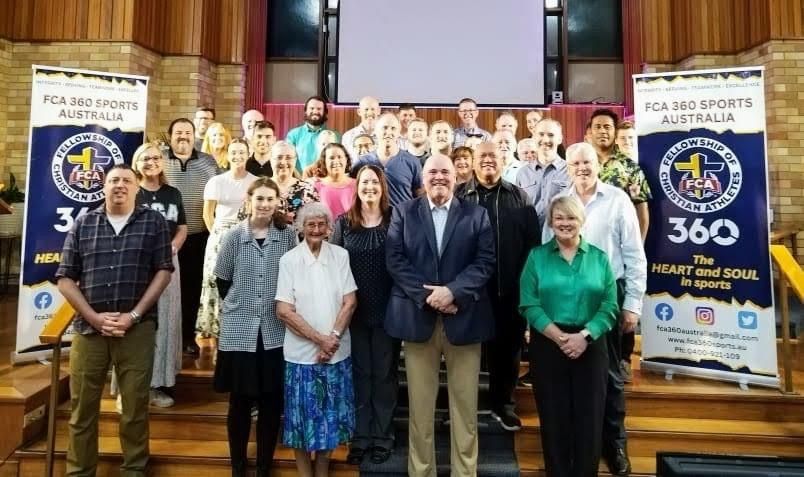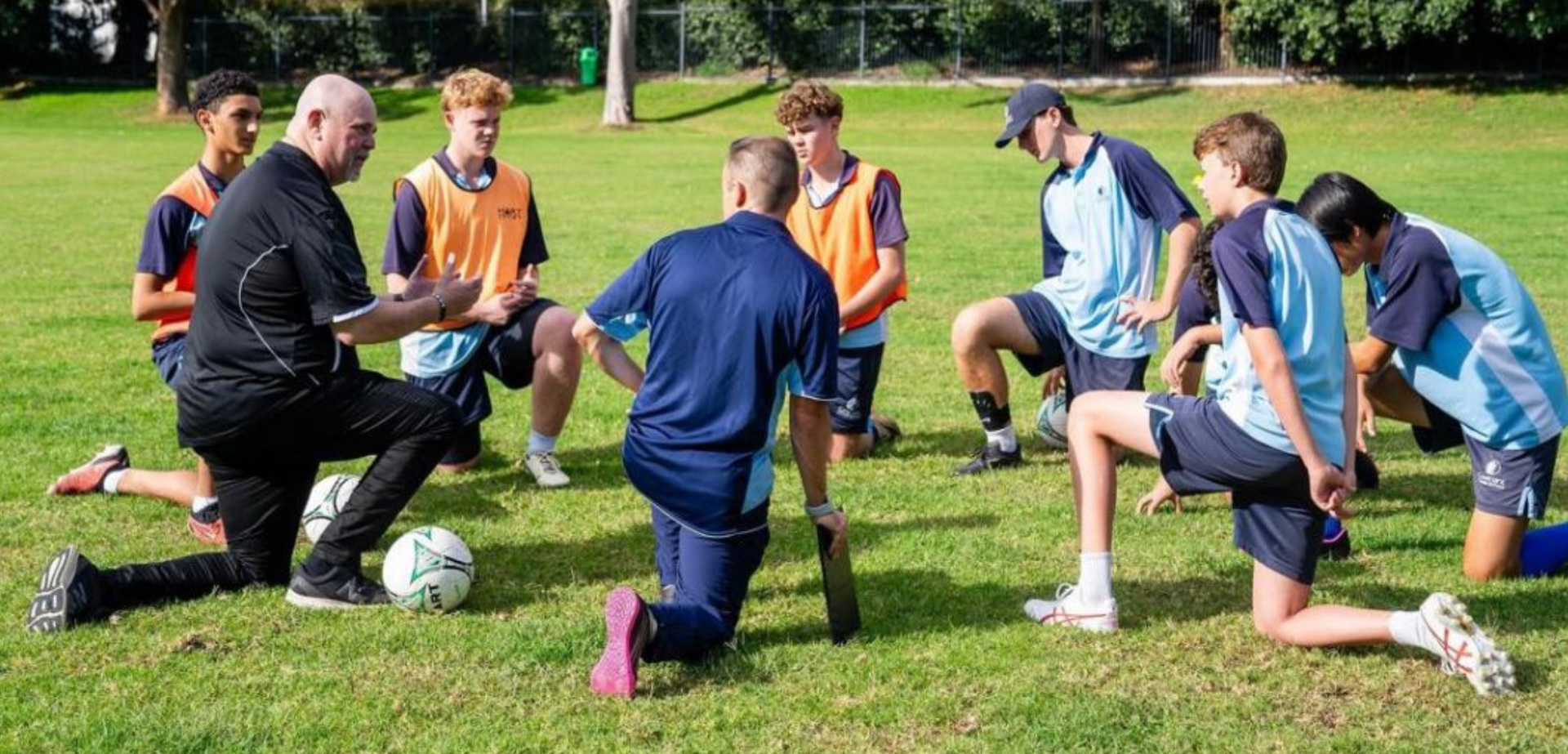More Than a Moment: Making Disciples Through Sport
More Than a Moment: Making Disciples Through Sport

I get so excited when someone decides to say yes to following Jesus. It's amazing to be part of anyone's journey—from not knowing God to making that commitment. I've been privileged to walk with some of the footy guys I've coached as they journey towards Christ and then guided them through the sinner’s prayer. But the sad reality is that some of those guys who once made a decision aren’t following Christ today.
I have really wrestled with this. Did I need to be more intentional? Should I have given more warnings about temptation? Was I too full-on for them? I don’t know. I started telling myself, the road is narrow (Matthew 7:13-14), some seeds will be taken by birds (Matthew 13:4, 19), the weeds will choke them out (Matthew 13:7, 22). And yes, I believe these things can be true. But I also realised we can always learn to do things better and be more effective from our failings.
Here are some of the things I have learned:
1. Jesus Said, "Make Disciples," Not Converts
Why does this matter? I used to focus on getting people over a line—if I could just get them to say this prayer, my job was done. But Jesus didn’t say to make converts; He said to make disciples. When we focus on making disciples, we focus on relationship, not just moments.
When were Jesus' disciples converted? Was it when He said, Follow me? (Matthew 4:19) When He breathed the Holy Spirit on them? (John 20:22) When He died and rose again? (John 19:30, 1 Corinthians 15:3-4) Or when the Holy Spirit came at Pentecost? (Acts 2:1-4) The truth is, we don’t really know.
I used to focus on getting guys to say the sinner’s prayer—a single moment. But I’ve realised that you can say something without truly meaning it. Romans 10:9 talks about how those who make Jesus Lord will confess with their mouths and believe in their hearts—meaning that when people truly decide to follow Jesus, it will come from their own conviction, not from us pushing them.
I took this approach with one of the guys I was walking with from the football club. We read the Bible together, and I could see God working in his life. One day, while driving to his mum’s house, he called me and said, I’m going to tell my mum and uncle about Jesus. That verse came alive for me—they will confess with their mouths. (Romans 10:10)
2. It’s Not My Job to Change People—I'm Just the Messenger
Paul says, some will plant, and some will water (1 Corinthians 3:6-7). If we remember that God is the one doing the work, we won’t put pressure on ourselves to force results. We also need to be careful not to rush ahead of Jesus. Some people are hostile toward God, and we can push them even further away if we’re not sensitive to the Spirit. Our role might be just preparing the soil for the next person God brings along.
A great way to prepare soil is by asking great questions. In the Gospels Jesus asks many more questions than he answers. To be precise, Jesus asks 307 questions. He is asked 183 of which he only answers 3. Asking questions was central to Jesus' life and teachings. (Matthew 22:15-22, Luke 10:25-37, Mark 10:17-22).
One footballer I caught up with was an atheist and asked me what my thoughts were about evolution. I asked him a question back, “who do you think created the big bang?” I think back to the conversations in the past where I tried convincing people that they were wrong. After the question, this guy messages me the next day saying he believes God created the world. Another guy I remember chatting with in the park was very open to the Bible. We had a great conversation, and I asked if he’d like to read the Bible together regularly. He said no and started to walk away, but then he turned around and said, you’re not the first person this week to ask me about reading the Bible. That reminded me—God was already working. My role wasn’t to force anything but to be obedient in that moment.
3. Pray and look for the "Person of Peace"
Jesus tells us to pray for the harvest (Luke 10:2) and to look for the person of peace—someone open to the Kingdom, willing to listen, or even willing to serve you. (Luke 10:5-7)
This doesn’t necessarily mean they’ll come to where your church gathers when you invite them. Our goal isn’t to get people to a service—it’s to bring them to Jesus and yes, as they are discipled, they will be part of the church.
I once sensed God was working on one of the footy guys. So, I went up to him and asked, what are your thoughts on God? He said, I’ve been thinking about God a lot lately. Another guy I felt prompted to invite to our Sunday gathering where our church meets. I knew this was God because this is not my natural response—I’d usually grab a coffee or have dinner first. He said yes. That was a reminder to me: God prepares hearts, and we just follow His lead.
4. Stay With Them—Discipleship is Life on Life
Once we find that person of peace, Jesus says to stay with them. (Luke 10:7) He even tells His disciples to eat with them. I really believe food is central to discipleship.
Jesus came eating and drinking, and the religious leaders thought He was a glutton because of it. (Luke 7:34) But meals create space for real relationships, and discipleship is about imitation, not just information. It’s not just taking someone through a seven-week study—it’s about doing life together.
Discipleship means letting people into your life, into your family. Yes, we can read the Bible with them, but the goal isn’t just content—it’s transformation. Jesus said to stay with them. For how long?
Until they can feed themselves—and then help feed others. (2 Timothy 2:2)
I’m still learning and growing in this, but my heart is shifting from chasing moments to investing in relationships. When we walk with people, meet them where they’re at, and trust that God is doing the work, we’ll see true discipleship take root—not just decisions, but lives transformed for generations to come.
Kade Klemke










